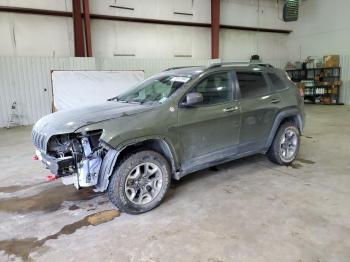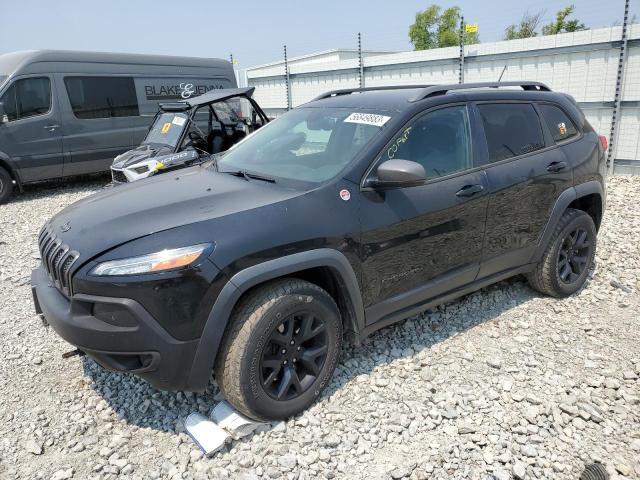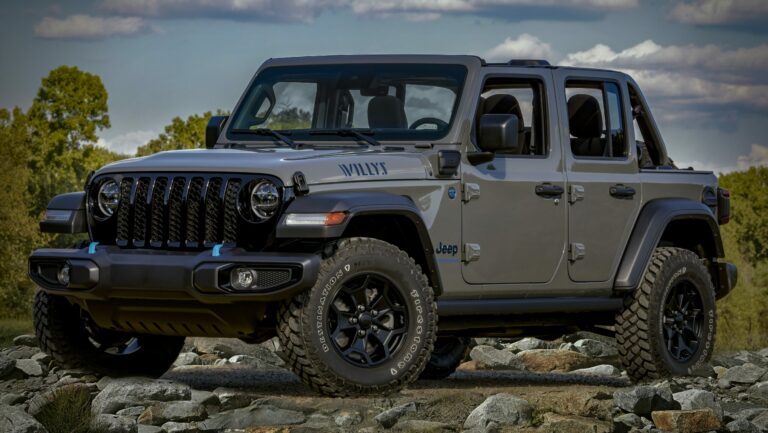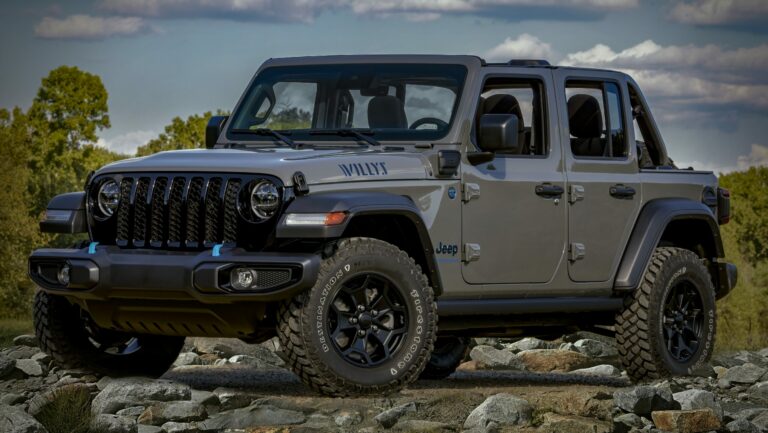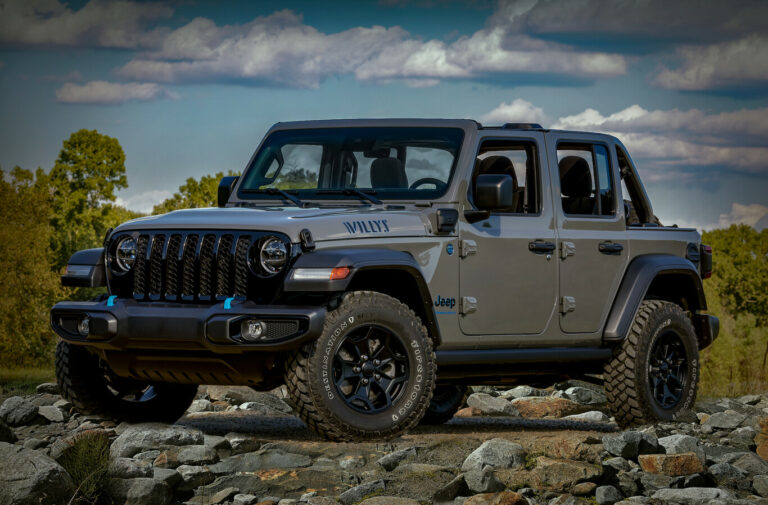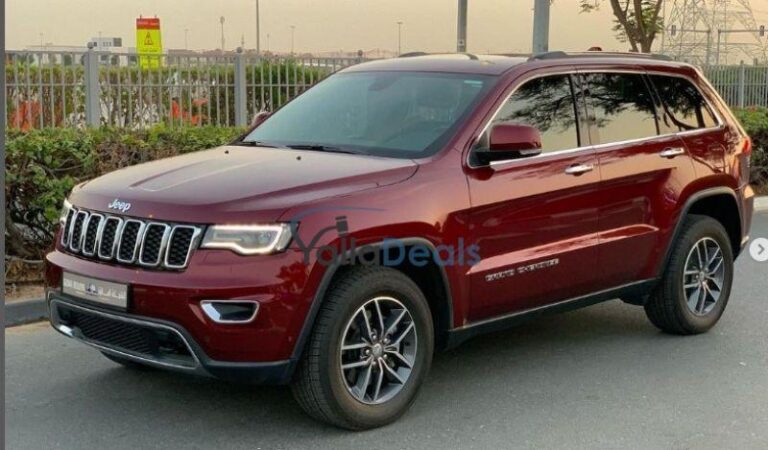Salvage Jeep Cherokee For Sale: Unlocking Value from Totaled Titans
Salvage Jeep Cherokee For Sale: Unlocking Value from Totaled Titans jeeps.truckstrend.com
The allure of the Jeep Cherokee is undeniable. From the iconic, boxy XJ models revered by off-road enthusiasts to the more modern, refined KL series, the Cherokee represents a blend of rugged capability, versatility, and a sense of adventure. However, for many, the price tag of a pristine, clear-title Cherokee can be a significant barrier. This is where the world of Salvage Jeep Cherokee For Sale enters the picture, offering a unique opportunity to acquire these beloved vehicles at a fraction of their market value.
A salvage title indicates that an insurance company has declared a vehicle a "total loss." This doesn’t necessarily mean the car is irreparable; rather, the cost of repairs exceeded a certain percentage of its market value (which varies by state). For the savvy buyer, mechanic, or enthusiast, a salvage Jeep Cherokee isn’t just a totaled vehicle; it’s a potential project, a parts donor, or a highly rewarding restoration journey. It’s about seeing beyond the damage to the inherent value and capability that still lies within. This comprehensive guide will delve into every aspect of buying a salvage Jeep Cherokee, from understanding the title to navigating the rebuild process, helping you determine if this path is right for you.
Salvage Jeep Cherokee For Sale: Unlocking Value from Totaled Titans
Understanding the Salvage More Than Just "Totaled"
Before diving into the market, it’s crucial to grasp what a salvage title truly signifies. A vehicle typically receives a salvage title due to one or more of the following reasons:
- Collision Damage: The most common cause, where the cost of repairing accident damage (structural, mechanical, or cosmetic) exceeds the insurance company’s threshold.
- Flood Damage: Water ingress can wreak havoc on electrical systems, interiors, and cause long-term rust issues. This is often the riskiest type of salvage title.
- Theft Recovery: If a stolen vehicle is recovered but significantly damaged, stripped, or missing vital components, it may be declared a total loss.
- Vandalism: Extensive cosmetic damage or destruction of interior components can also lead to a salvage designation.
- Hail Damage: Severe hail can cause widespread dents and broken glass, making repairs uneconomical.
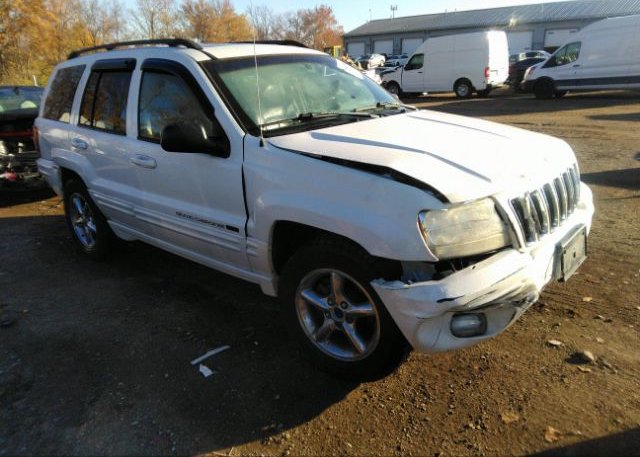
It’s important to distinguish a salvage title from a clear title (meaning no prior total loss) and a rebuilt title. A vehicle with a salvage title cannot be legally driven on public roads until it undergoes repairs and passes a state inspection, after which it is issued a "rebuilt" or "reconstructed" title. This rebuilt title signifies that the vehicle was once salvaged but has been repaired and deemed roadworthy. While a rebuilt title allows for legal registration and driving, it will always carry a lower market value than a comparable clear-title vehicle.
Why Buy a Salvage Jeep Cherokee? Benefits and Opportunities
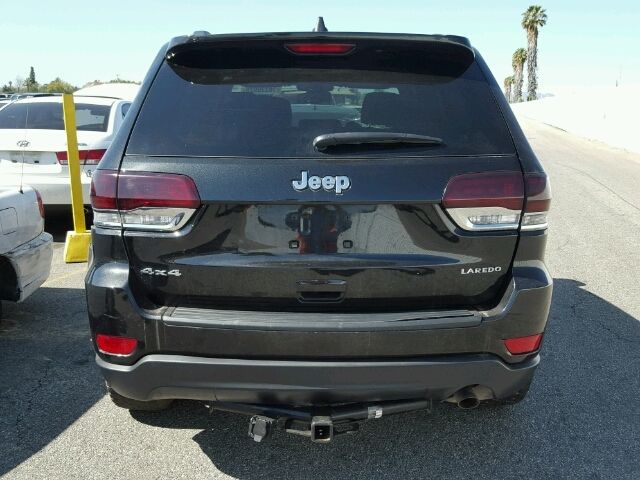
The decision to purchase a salvage Jeep Cherokee isn’t for everyone, but for those with the right skills, resources, and mindset, it offers compelling advantages:
- Significant Cost Savings: This is the primary driver. Salvage vehicles are often sold for 30-70% less than their clear-title counterparts, making a Jeep Cherokee much more accessible.
- Ideal Parts Donor: For off-road enthusiasts or those with another Cherokee needing repairs, a salvage vehicle can be an invaluable source of affordable, original parts. Engines, transmissions, axles, body panels, and interior components can be harvested.
- Rewarding Restoration Project: For mechanics, DIY enthusiasts, or those looking to learn, rebuilding a salvage Cherokee can be an incredibly fulfilling project. It allows for hands-on experience and a deep understanding of the vehicle’s mechanics.
- Customization Potential: Since you’re already repairing it, a salvage Cherokee provides a blank canvas for custom modifications, such as lift kits, heavy-duty bumpers, and specialized off-road equipment, without the guilt of cutting into a pristine vehicle.
- Potential for Profit: With the right expertise and careful cost management, it’s possible to purchase a salvage Cherokee, restore it, obtain a rebuilt title, and sell it for a profit, though this requires significant market knowledge and repair skills.
- Environmental Benefit: By restoring a salvage vehicle, you’re giving it a second life, reducing waste, and lessening the demand for new vehicle production.

Where to Find Salvage Jeep Cherokees For Sale
The market for salvage vehicles is specialized, but accessible if you know where to look:
- Online Auto Auctions (Public & Dealer Only):
- Copart: One of the largest global online auction platforms for salvage, wrecked, and clear-title vehicles. Anyone can register and bid, though some vehicles might require a dealer license.
- Insurance Auto Auctions (IAAI): Similar to Copart, IAAI offers a vast inventory of salvage vehicles from insurance companies. Both platforms provide detailed photos, vehicle information, and sometimes even inspection reports.
- Local Salvage Yards & Auto Recyclers: Many local junkyards or auto recyclers purchase salvage vehicles directly from insurance companies or individuals. You might find better deals here, but inventory can be inconsistent, and vehicles might not be listed online.
- Specialized Salvage Dealers: Some businesses specialize in buying salvage vehicles, performing minor repairs, and reselling them. They might offer a slightly higher price than auction, but often provide more transparency and sometimes even a "rebuilt" title already.
- Online Classifieds & Marketplaces: Websites like Craigslist, Facebook Marketplace, or specialized forums sometimes list salvage vehicles directly from private sellers. Exercise extreme caution and always perform thorough due diligence when buying from private parties.
The Buying Process: A Step-by-Step Guide
Purchasing a salvage Jeep Cherokee requires meticulous planning and a systematic approach:
-
Research and Define Your Goal:
- Model Year & Generation: Decide which Cherokee generation you prefer (XJ, KJ, KK, KL). Each has unique characteristics, common issues, and parts availability.
- Purpose: Is it for parts, a personal project, or a flip? Your goal will dictate your budget and tolerance for damage.
- Common Issues: Research known weaknesses for your chosen Cherokee model (e.g., rust on XJ unibodies, transmission issues on early KJs, specific electrical gremlins).
-
Thorough Pre-Purchase Inspection (PPI): This is the single most critical step.
- In-Person Inspection (Highly Recommended): If possible, physically inspect the vehicle. Look for:
- Frame Damage: Crucial. Bent or twisted frames are often prohibitively expensive to repair.
- Flood Damage Indicators: Musty smell, water lines on upholstery/door panels, rust in unusual places (under dash, wiring harnesses), silt in crevices. Avoid flood-damaged vehicles unless you are an expert in electrical systems.
- Engine & Transmission: Check fluid levels, signs of leaks, attempt to start if allowed (listen for knocking, smoke).
- Electrical System: Test lights, power windows, radio, AC.
- Interior: Check for mold, missing components, airbag deployment (if collision).
- Undercarriage: Inspect for rust, damage to suspension components, exhaust.
- Online Inspection: If buying remotely from an auction, scrutinize all provided photos and videos. Pay for any additional inspection services offered by the auction house.
- VIN Check: Run a comprehensive VIN report (Carfax, AutoCheck). This provides accident history, odometer readings, and previous title information.
- In-Person Inspection (Highly Recommended): If possible, physically inspect the vehicle. Look for:
-
Estimate Repair Costs: Be realistic and conservative.
- Parts: Research average prices for replacement parts (new, used, aftermarket). Online parts diagrams and forums can be invaluable.
- Labor: If you’re not doing the work yourself, get quotes from trusted mechanics or body shops.
- Hidden Damage: Always budget an additional 10-20% for unforeseen issues that only become apparent during disassembly.
- Paint & Bodywork: Often the most expensive part of a cosmetic restoration.
-
Set Your Budget and Bid/Negotiate: Factor in the purchase price, auction fees, transportation costs, parts, labor, and state inspection/titling fees. Stick to your maximum budget.
-
Arranging Transportation: Salvage vehicles are typically non-drivable. You’ll need to arrange flatbed towing or shipping from the auction site or seller to your location.
-
Titling and Registration (The Rebuilt Process): This is state-specific and crucial.
- Documentation: Keep all receipts for parts and labor.
- Repairs: Complete all necessary repairs to meet state safety standards.
- Inspection: Schedule a state inspection (often by highway patrol or DMV personnel) to verify repairs and ensure the vehicle is safe for road use.
- Rebuilt Title Issuance: Once it passes inspection, your state will issue a rebuilt or reconstructed title. Only then can you register and insure the vehicle.
Key Considerations Before Buying
- Extent of Damage: Focus on structural integrity. A vehicle with major frame damage is often a money pit. Cosmetic damage (panels, glass) is generally easier and cheaper to fix.
- Flood Damage Risk: As mentioned, flood-damaged vehicles are extremely risky due to potential long-term electrical and rust issues that are hard to diagnose.
- Theft Recovery Complications: Theft recovery vehicles might have damaged wiring harnesses, ignition systems, or missing key components, leading to unexpected repair costs.
- Your Expertise & Resources: Do you have the mechanical skills, tools, and time? If not, factor in professional labor costs, which can quickly negate savings.
- Resale Value Impact: A rebuilt title will always negatively impact the vehicle’s resale value compared to a clean title. Be prepared for this depreciation.
- Insurance Challenges: Some insurance companies may be hesitant to offer full coverage (comprehensive and collision) on rebuilt title vehicles, or they may charge higher premiums. Shop around.
- State Regulations: Research your state’s specific requirements for obtaining a rebuilt title before you buy. They vary significantly.
Common Repairs and Upgrades for Salvage Cherokees
Depending on the damage, a salvage Cherokee project might involve:
- Mechanical: Engine/transmission replacement or overhaul, suspension component replacement (control arms, shocks), brake system repairs.
- Body & Frame: Panel replacement (fenders, doors, hood), bumper replacement, frame straightening (if minor).
- Electrical: Wiring harness repair, sensor replacement, module replacement.
- Interior: Airbag system replacement, seat repair/replacement, dashboard repair, cleaning/sanitizing.
- Safety: Seatbelt replacement, light repair, tire replacement.
Many owners also use the opportunity to perform popular Jeep Cherokee upgrades:
- Lift Kits: For increased ground clearance and off-road capability.
- Heavy-Duty Bumpers & Winches: For protection and recovery.
- Improved Lighting: LED light bars and auxiliary lights.
- Aftermarket Wheels & Tires: For enhanced performance and aesthetics.
Challenges and Solutions
- Hidden Damage: The most common challenge.
- Solution: Thorough PPI, budget contingency funds, and be prepared for surprises.
- Parts Availability & Cost: While Cherokees are popular, specific parts for older models or unique trims can be scarce or expensive.
- Solution: Utilize online parts diagrams, join Cherokee owner forums, explore aftermarket options, and consider salvage yards for used parts.
- Time Commitment: Rebuilding a vehicle is a time-consuming endeavor.
- Solution: Be realistic about your schedule, set small achievable goals, and don’t rush the process.
- Financial Overruns: Costs can quickly spiral out of control.
- Solution: Stick to your budget, prioritize essential repairs, and track every expense meticulously.
- Passing State Inspection: The inspection process can be stringent.
- Solution: Understand all requirements beforehand, ensure all safety systems are fully functional, and address even minor issues.
Practical Advice and Actionable Insights
- Always Get a VIN Check: This is non-negotiable. It provides invaluable history.
- Don’t Buy Sight Unseen: Unless you are a highly experienced professional with a clear understanding of the risks, always try to inspect the vehicle in person.
- Calculate Total Cost: Factor in purchase price, auction fees, shipping, parts, labor, paint, state inspection fees, and registration. Don’t just look at the initial price.
- Have a Clear Plan: Know what you intend to do with the vehicle (parts, personal use, resale) before you buy.
- Network: Join online forums and local Jeep clubs. Experienced Cherokee owners can provide invaluable advice, help with parts sourcing, and even assist with repairs.
- Start Small: If this is your first project, consider a vehicle with minor, easily identifiable damage rather than a heavily wrecked one.
Salvage Jeep Cherokee Estimated Price Guide
Please note: These are estimated price ranges and can vary wildly based on the extent of damage, model year, trim level, mileage, location, and the specific auction/seller. Repair costs are also highly variable based on parts availability, your DIY skills vs. professional labor, and the severity of the damage.
| Jeep Cherokee Generation | Typical Years | Estimated Salvage Purchase Price Range (USD) | Common Damage Types Seen | Estimated Repair Cost Range (USD) | Potential Rebuilt Value (USD) |
|---|---|---|---|---|---|
| XJ (Classic) | 1984-2001 | $500 – $3,000 | Front/Rear Collision, Rust, Theft Recovery, Minor Mechanical | $1,500 – $5,000+ | $4,000 – $12,000+ |
| KJ (Liberty) | 2002-2007 | $800 – $3,500 | Front Collision, Vandalism, Minor Flood, Mechanical | $2,000 – $6,000+ | $5,000 – $10,000+ |
| KK (Liberty) | 2008-2012 | $1,000 – $4,000 | Front Collision, Side Impact, Hail, Mechanical | $2,500 – $7,000+ | $6,000 – $14,000+ |
| KL (Modern) | 2014-Present | $2,000 – $10,000+ | Front/Rear Collision (Airbag Deploy), Vandalism, Light Flood | $4,000 – $12,000+ | $10,000 – $25,000+ |
Note: "Estimated Repair Cost Range" assumes a mix of DIY and professional labor. Major structural or powertrain damage could push costs significantly higher. "Potential Rebuilt Value" is for a well-repaired, clean, and functioning vehicle, always less than a comparable clear-title vehicle.
Frequently Asked Questions (FAQ)
Q1: What exactly is a salvage title?
A1: A salvage title is issued when an insurance company declares a vehicle a "total loss" because the estimated cost of repairs exceeds a certain percentage (often 70-90%) of its market value. This does not always mean the vehicle is beyond repair, just that it’s uneconomical for the insurer.
Q2: Can I drive a vehicle with a salvage title?
A2: No. A vehicle with a salvage title cannot be legally registered, insured, or driven on public roads. It must first be repaired and inspected by the state to receive a "rebuilt" or "reconstructed" title.
Q3: How do I get a rebuilt title for a salvage Jeep Cherokee?
A3: The process varies by state but generally involves: completing all necessary repairs to meet safety standards, keeping all receipts for parts and labor, and then submitting the vehicle for a state inspection. If it passes, the state DMV will issue a rebuilt title.
Q4: Is it hard to insure a rebuilt title car?
A4: It can be. Some insurance companies may be hesitant to offer full coverage (comprehensive and collision) on rebuilt title vehicles, or they may charge higher premiums. It’s essential to shop around and get quotes from multiple insurers before you buy.
Q5: Are parts for Jeep Cherokees expensive or hard to find?
A5: For older generations like the XJ, parts are generally abundant and relatively inexpensive, especially used parts. For newer generations (KL), parts can be more expensive, especially complex electronic components. Overall, parts availability for Cherokees is good due to their popularity.
Q6: Is it worth buying a salvage Jeep Cherokee?
A6: It depends on your skills, resources, and goals. For experienced mechanics, DIY enthusiasts, or those needing a parts donor, it can be highly worthwhile, offering significant savings or a rewarding project. For someone looking for a turn-key daily driver without mechanical expertise, it’s generally not recommended.
Q7: How much can I save by buying a salvage Cherokee?
A7: Salvage vehicles typically sell for 30-70% less than their clear-title counterparts. However, remember to factor in all repair costs, fees, and the reduced resale value of a rebuilt title vehicle to calculate your true savings.
Conclusion
The world of Salvage Jeep Cherokee For Sale is a unique corner of the automotive market, brimming with potential for those willing to embrace its challenges. It offers an unparalleled opportunity to own a capable and iconic vehicle at a fraction of the cost, whether your aim is to meticulously restore it, harvest its valuable components, or embark on a customized build.
However, this path demands diligence, mechanical aptitude, and a realistic understanding of the time and financial investment involved. From the critical pre-purchase inspection to navigating state-specific titling regulations, every step requires careful consideration. For the right individual – the dedicated enthusiast, the savvy mechanic, or the determined DIYer – a salvage Jeep Cherokee isn’t just a totaled vehicle; it’s an adventure waiting to be rebuilt, a testament to the enduring spirit of the Jeep brand, and a truly rewarding endeavor.
